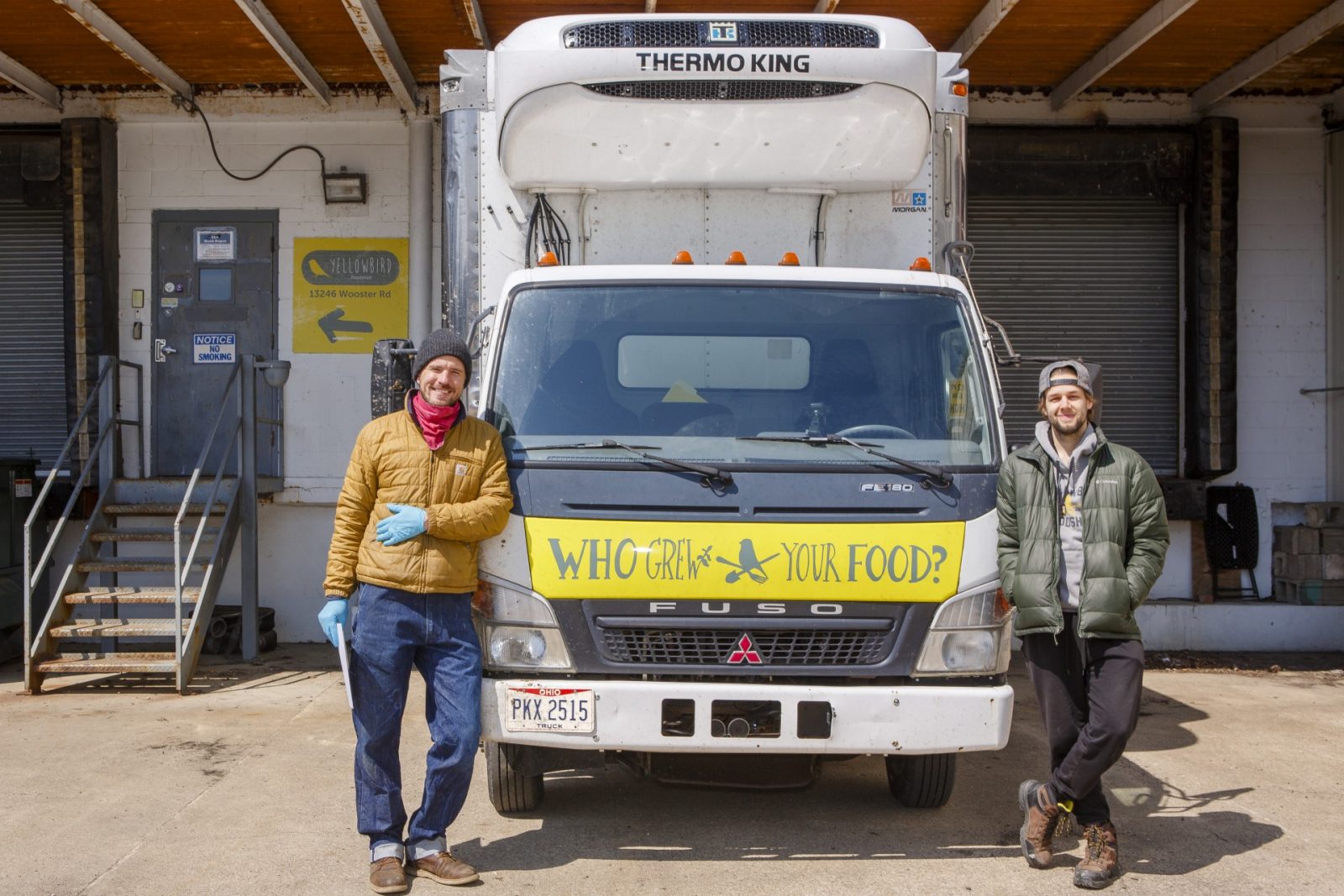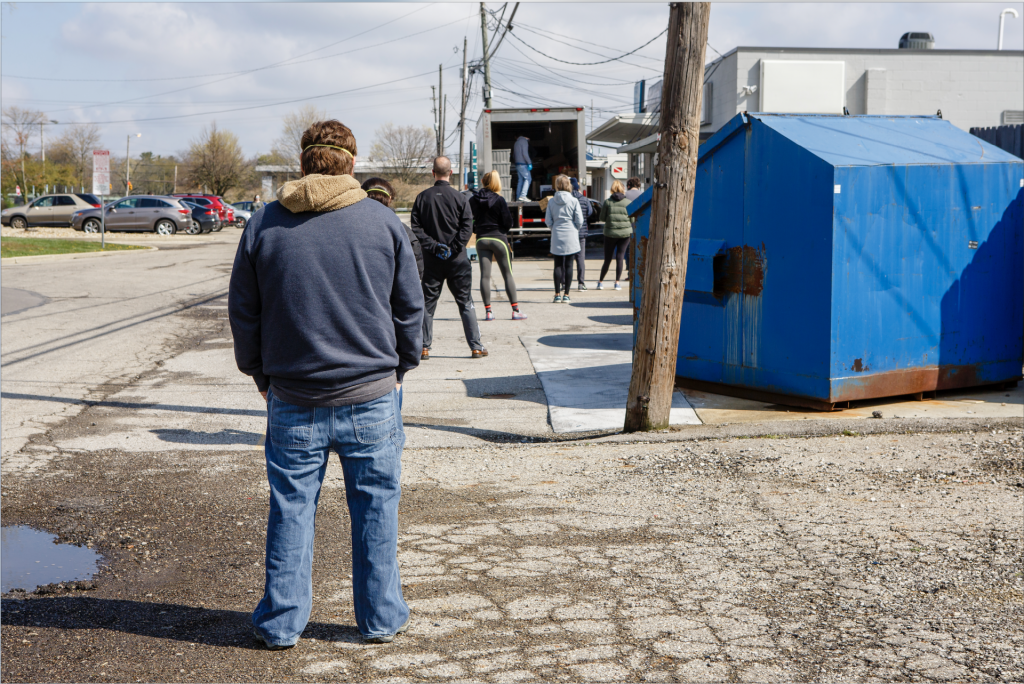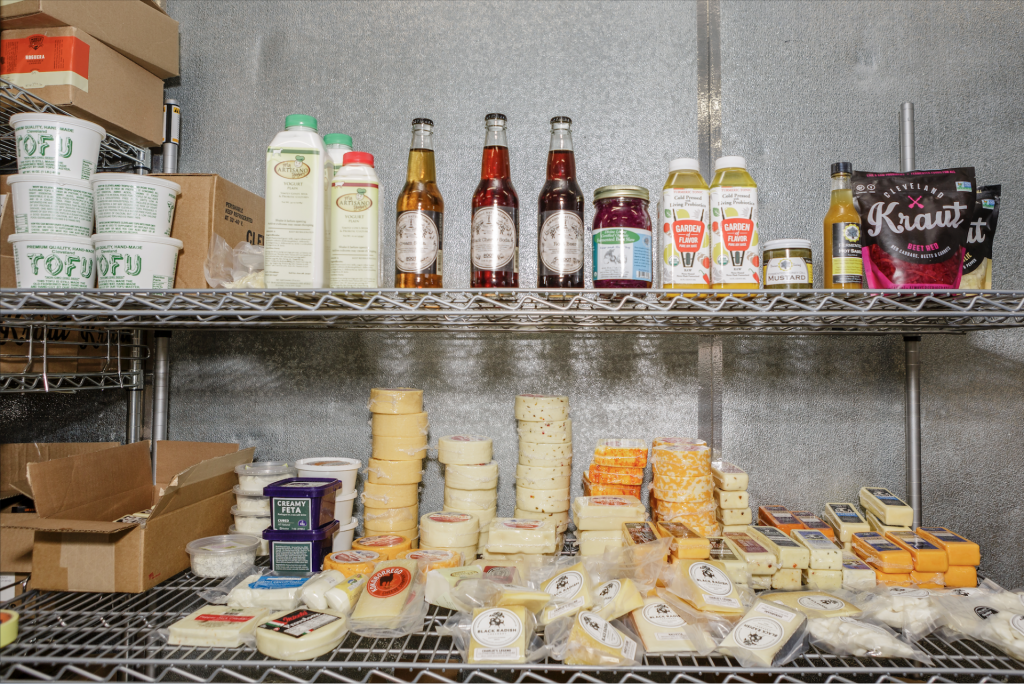Yellowbird Foodshed offers a fresh and local alternative to grocery shopping

“Who grew your food?” That’s the number one question Benji Ballmer asks all eaters. As the co-owner of Yellowbird Foodshed who works with more than 100 different Ohio food growers and producers, Ballmer knows exactly who grew his food—and he is making sure you can, too
At its core, Yellowbird Foodshed serves as a distributor where it connects growers with consumers. The options here range from CBD gummies from Ziola to cheese and dairy products from Black Radish Creamery. The idea, Benji said, started when he and Sarah, his wife, had their first child and started a garden in the backyard. The concept snowballed quickly; they added a half dozen chickens, started planning their diets around what they had fresh and available, and even started networking with local producers to obtain fresh meat, dairy, and other produce.

“We wanted raw milk, so we found a couple of farms that were doing that,” Benji said. “We wanted non-GMO grains to make our bread, so we found that. We wanted our meat to be raised on grass so we found a few people that were doing poultry, pork, and beef on grass. Doing all this opened our eyes to the food system in general, but also to the various health concerns that come with eating a ‘standard american diet.’ ”
Ballmer said that both sides of the equation were broken.
“On one side are the farms that are actually growing food in a regenerative way, but don’t have enough demand to be able to actually grow enough food to make a living,” he explained. “The other side is the consumer that has been tricked into thinking that food should be cheap, fast, convenient, and homogeneous.”
BROUGHT TO YOU BY
And this is where he hopes Yellowbird can alleviate these problems. By establishing connections and orders with local growers, Yellowbird is creating a demand. And through its subscription service, pick-up options, and even at-home delivery, it’s creating a supply for consumers.
These offerings become even more helpful and crucial during COVID-19 and shelter-in-place. It’s decentralizing where folks are getting their food which coincides with social distancing orders—there’s no long lines at the check-out counter here. Whether it be an at-home delivery or time slots to pick-up your orders, much of it can be nearly contactless. Since the outbreak, Ballmer said his delivery rates are increasing and order sizes have grown from serving just one person to serving as many as three.
This is something he predicted that would happen eight years ago, but as he said, old habits die hard. Now, it seems the tides are shifting. More people are interested in where their food is coming from, especially during a pandemic.
“Now, for all the different reasons that we are seeing, food has become a little scarce, people are concerned about where it is coming from, and also concerned about their own safety and immunity as it relates to what they are putting in their bodies that may be coming in contact with a virus,” he said.
Currently, Yellowbird is cycling through winter vegetables like squash, sweet potatoes, cabbage, and carrots. The future holds a bountiful harvest as items like strawberries, asparagus, green onions, and spring greens will soon be available. The Foodshed also ventured out of Ohio for the first time and made a connection in Florida with a third-generation organic citrus farm to provide oranges, orange juice, and grapefruits. It’s safe to say we could all use a little extra Vitamin C right now.

And while Yellowbird can provide a wide variety of options for your kitchen, it also has created a community. The “A Seat at the Table” Facebook group has 560 members sharing recipes using their recent pick-ups, giving tips to other members, and having discussions about various topics like sustainability, zero-waste living, and of course, how to raise your kids. There’s also the “Friday Five” email blast Ballmer sends out. It’s a collection of his thoughts on whatever he consumed that week; pop culture, a new book, a joke, or even a quote.
“I have always been a huge reader and that naturally has progressed to podcasts, and other media on the phone. I wanted to connect with people outside of always trying to sell them something,” he said.
Yellowbird is helping its community in many ways, and its arms are open to members. From its connections with growers to the folks who rely on these products for their own homes, it looks like Ballmer is doing exactly what he set out to do. And little messages like this email from a member is all the proof he needs.
“My two year old son waits all day for the ”vegetable man” and today was the first time we saw him do the drop off,” the email read. “My son was parked right at the front door on a stool watching him load our cooler, screaming “THE VEGETABLE MAN IS HERE!” and the guy (bless him!) was incredibly joyful and kind—waving to him the entire time. It is the little things that count and you all do so many “little” things that make food as special as it should be.”
To learn more about Yellowbird Foodshed, visit yellowbirdfs.com or find it on Instagram at @yellowbirdfoodshed.
BROUGHT TO YOU BY



